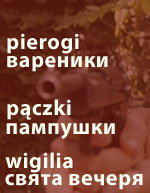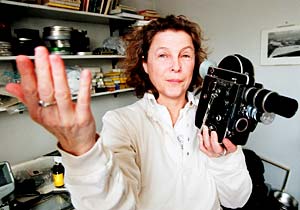Excerpt from Oscar of Between, Part 12B
by
Betsy Warland
Signals of membership often more subtle than obvious.
Café Rico yesterday, Erin talking about visiting her mother’s village. One of her mom’s final requests: “spread my ashes there.”
Erin talking of the Second World War Ukrainian Nationalists’ strategy for figuring out who were the Ukrainian Poles. The person in question was asked the names of various foods. As simple as that: a word automatically emits from your mouth and your life is over.
The person in question was asked the names of various foods. As simple as that: a word automatically emits from your mouth and your life is over.
~~~
Tea finished, Oscar perched at window watches sunlight a-shine on bare-limbed bushes and small trees making them look like rivulets, tributaries.

Grey cat jumps atop garden shed roof. Paws diagonally across — pauses midway to scan surrounds — then ballet points down to cross bar of chain-link, highwiring it out of sight.
Oscar after tea still at window; grey cat across shed roof to chain-link fence intersect each morning at this time without fail. Grey cat reminding Oscar: allegiance to even our most banal of habits, fierce.
~~~
Gail and Oscar tucked in the far corner of Librairie Olivieri Bistro animated by food, wine, conversation. Gail talking of her time in New York, of her nearly finished novel, The Obituary. Oscar talking of her time in London a couple of years ago, when she began writing Oscar of Between.
Recognition of their related narrative preoccupations.
Gail’s manuscript: surveillance.
Oscar’s: camouflage.
~~~
At a rare four-feminist lesbian/queer authors’ reading, Oscar is third. As is often the case, Oscar senses a gap in the kind of listening her writing requires, a shift she can never assume the audience will make. She thinks of the opera-loving Venetians who called the space between stage and audience “this gulf of sorrows.” What if this audience refuses? Her throat tightens as she walks up to the read, excerpt from Oscar of Between in her hand. Too late now, she has to surrender to it. A couple of minutes into her reading she feels that particular silence in the room of being at the mercy of the narrative. Then it’s over. Applause and an excruciating shyness. How to get from here to there: her seat in the back?
Deep breath. As Oscar nears her seat his arm shoots out.
“Thank you!”
He shakes her hand vigorously.
“That was deep. I like deep.”
Oscar stunned.
~~~
“You’re in the wrong washroom!”
In Oscar’s daily life, when encountering someone, it goes like this: some address her as a male; some address her as a female; some begin with one and then switch (sometimes apologetically) to the other; some identify Oscar as lesbian and their faces harden, or, open into a momentary glance of arousal; some know they don”t know and openly scrutinize; some decide female but stare perplexedly at her now-sans-breast-chest; some are bemused by, drawn or relate to her androgyny; and for some none of this matters.
Oscar’s only desire — to be present to herself and them.
On days turbulent with unpredictable reactions, Oscar longs for simplicity of camouflage. Yet has no instinct for it. It would only put her at odds with who Oscar is.
Then she brightens. Oscar — person of between — notices another response from others of between.
Curiosity.
Guest Artist:
Barbara Sternberg
Toronto, ON
barbarasternberg.com
VERS(ING)
10 minutes, 2011
by Barbara Sternberg, in collaboration with Sandra Gregson
Vers, moving toward something, around a certain time. Versing to express in verse. Conversing to talk informally with another or others; exchange views, opinions by talking.
vers(ing) opens in a coffee shop. People, sit, enter and exit. A conversation is heard. The video continues, traveling through the streets of a city, to a park, to other coffee shops, other places. No particular destination is reached, but as we travel, fragments of text are read, conversations are heard, settings, people and objects are noticed.
vers(ing) presents a moving toward that is transitory and offers a poetic contemplation of how life, meaning and film are intertwined and constructed.
“I believe I’ve never mistaken fiction for reality, though I have mixed them together more than once, as everyone does.” Javier Marias, Dark Back of Time
Vers(ing) from CDNArtists on Vimeo.





Oscar, It seems to me that every aspect of your voice; the words you choose, the intonation, the way the breath rushes through your vocal chords is so completely feminine that I have always, from the moment of first contact, felt enveloped in your female presence. Impossible to conceal.
tearing at the edges of these words, wallpaper, my fingers picking at the cracks already begun there. constant, the breaths i take between strokes. all the corridors inside my skin opening just before the whir of the filter
rich echoes layers interplays
between barbara’s film
oscar’s ruminations
mine as i read and watch
“gulf of sorrows” & “bridge of sighs” comes to mind
same venice but not stage & audience
prison and palace’s interrogation rooms
oscar’s finger on pulse
inter-rogare
ask between
barbara sternberg’s vers(ing) turns
to words & street
urban life slices
“a word that spreads a longing through the sprawl of the city”
not underworld
between worlds
“I believe I’ve never mistaken fiction for reality, though I have mixed them together more than once, as everyone does.” Javier Marias, Dark Back of Time
The statement is quoted in Barbara’s piece, and by weaving together dialogue and images that don’t immediately mesh for the viewer, she’s calling attention to this idea. I guess it’s an infinitely relevant statement, but I think of how relevant it is right now, with internet marketing turning to storytelling as the new form of “soft sell.” The infamous “War Of The Worlds” radio fiasco is being played out in miniature every day, in online narratives about royals and celebrities and CEOs.
And products: shampoo that ended hunger in Bolivia, skin cream that made other women feel good about their bodies.
Twitter arguments that didn’t really happen, starring people who don’t really exist.
We have long since embraced the wisdom “Don’t believe everything you read” when it comes to newspapers, but the online world still inhabits the in-between, where eager users suspend their disbelief in the name of entertainment.
This is dangerous.
Via an email exchange mid-November, regular reader, frequent commentor and poet Marilyn Belak wondered if Oscar was seeking to “cross over” from “between to more completely looking like a man.” Important question! Marilyn acknowledged that she preferred the anonymity and mystique of betweeness. I assured her that no, Oscar doesn’t want to cross over although she has relinquished correcting people. Happily relinquished I might add, as frankly, it’s tedious and required that Oscar always be at the ready. Being taken for either has become fine with Oscar (excepting when it may be rude or dangerous). Do keep in mind that the unpredictable gender identifying happens with strangers, not people Oscar knows yet this assessing is not a minor part of daily life.
Barbara Sternberg’s video confirms it’s not minor in her glimpses of strangers in public. These momentary glimpses stuck me as almost shockingly intimate. Urban street life is typically defined in terms of anonymity and isolation yet my experience of the strangers in her footage was very emotional: it’s remarkable how much about them is exposed including how the two dachshunds look up at their owner for reassurance.
It’s an odd contradiction: we’re preoccupied with how we look in public yet on a deeper level, we don’t believe anyone is interested enough in us to really look. Perhaps this is another reason Oscar has desisted in correcting people: it allows her to be at ease with who she is while at the same time it allowing others to look without reservation. Although momentary, an intimate encounter is agreed upon.